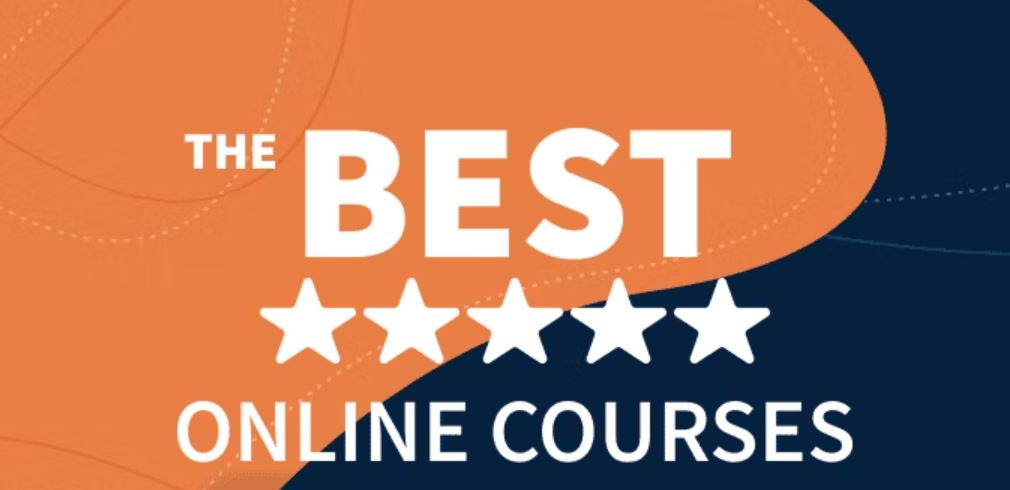Online learning has revolutionized education, making it accessible and affordable for everyone. Whether you’re looking to acquire new skills, advance your career, or simply explore a new hobby, there’s an online course out there for you. Here’s a guide to help you find the best online courses for beginners:
Popular Online Learning Platforms
Coursera is one of the most popular online learning platforms, offering courses from top universities and institutions worldwide. With a wide range of subjects, from computer science to humanities, Coursera caters to learners of all levels. Their courses often include video lectures, quizzes, assignments, and peer-reviewed projects, providing a comprehensive learning experience.
edX is another leading online learning platform that partners with renowned universities to offer high-quality courses. Similar to Coursera, edX offers a diverse range of subjects and provides a structured learning environment with video lectures, quizzes, and assignments.
Udemy is a vast marketplace of courses taught by experts, covering a variety of topics. Unlike Coursera and edX, Udemy offers a more flexible learning experience, with courses available at various price points and often featuring lifetime access. While the quality of courses on Udemy can vary, there are many excellent options available for beginners.
LinkedIn Learning (formerly Lynda.com) is a great platform for those looking to enhance their professional skills. With a focus on business, technology, and creative skills, LinkedIn Learning offers a wide range of courses taught by industry experts. The platform also provides a personalized learning experience, recommending courses based on your interests and career goals.
Khan Academy is a non-profit organization that offers free, world-class education for anyone, anywhere. With a focus on math, science, computing, and humanities, Khan Academy provides clear and concise video tutorials that can be accessed at your own pace.
Types of Online Courses
Online courses come in various formats to cater to different learning styles and preferences. Here are some of the most common types:
1. Self-Paced Courses
- Flexible learning: Students can complete coursework at their own pace.
- No fixed schedule: Ideal for those with busy lifestyles.
- Common formats: Video lectures, readings, quizzes, assignments.
2. Live Online Courses
- Real-time interaction: Students attend live classes via video conferencing.
- Scheduled sessions: Requires commitment to attend at specific times.
- Common formats: Lectures, discussions, group projects.
3. Blended Learning Courses
- Combination of online and in-person learning: Offers the best of both worlds.
- Flexible scheduling: May involve online coursework with occasional in-person workshops or meetings.
- Common formats: Online lectures, readings, in-person labs or workshops.
4. Micro-Credentials
- Short, focused courses: Designed to teach specific skills or knowledge.
- Certificate or badge upon completion: Can be added to a resume or portfolio.
- Common formats: Online modules, quizzes, assignments.
5. Degree Programs
- Full-fledged academic degrees: Offered by universities and colleges.
- Structured curriculum: Follows a set of courses and requirements.
- Common formats: Online lectures, readings, assignments, exams.
6. Bootcamps
- Intensive, short-term programs: Focus on specific skills or industries.
- Hands-on experience: Often involve practical projects and real-world applications.
- Common formats: Lectures, workshops, group projects, coding challenges.
7. MOOCs (Massive Open Online Courses)
- Free or low-cost courses: Available to a large number of students.
- Often non-credit bearing: May not lead to a formal degree or certificate.
- Common formats: Video lectures, quizzes, assignments.
Choosing the right type of course depends on your learning style, goals, and available time. Consider factors such as flexibility, interaction, and the level of commitment required when selecting a course.
Choosing the Right Online Course
- Identify your goals: What do you want to learn? Are you looking to acquire new skills, advance your career, or simply explore a new topic?
- Consider your learning style: Do you prefer visual, auditory, or kinesthetic learning? Some courses may be more suitable for your learning style.
- Check course reviews and ratings: Read feedback from other students to get a sense of the course quality and instructor’s teaching style.
- Look for beginner-friendly courses: Many platforms offer courses specifically designed for beginners, with clear explanations and step-by-step guidance.
- Consider the course format: Some courses offer live online classes, while others are self-paced. Choose the format that best suits your schedule and learning style.
- Check the course duration and workload: Ensure the course length and workload are manageable for you.
Popular Online Subjects for Beginners
- Programming: Python, JavaScript, HTML, CSS
- Data Science: Statistics, machine learning, data analysis
- Digital Marketing: SEO, social media marketing, content marketing
- Design: Graphic design, UI/UX design, web design
- Business: Entrepreneurship, business management, finance
- Personal Development: Productivity, time management, communication skills
- Languages: Spanish, French, Mandarin Chinese
Programming is a highly sought-after skill that can open up numerous career opportunities. Python is a popular language for beginners due to its readability and versatility. JavaScript is another essential language for web development, while HTML and CSS are used to structure and style web pages.
Data Science is a rapidly growing field that involves extracting insights from data. To get started in data science, you’ll need a strong foundation in statistics and machine learning. Popular courses in data science cover topics such as data cleaning, data analysis, and model building.
Digital Marketing is another in-demand skill that involves promoting products or services online. Courses in digital marketing cover topics such as search engine optimization (SEO), social media marketing, content marketing, and email marketing.
Design is a creative field that involves creating visually appealing designs. Graphic design, UI/UX design, and web design are popular areas of specialization. Courses in design often involve hands-on projects and the use of design software.
Business is a broad field that encompasses various aspects of running a company. Courses in business can help you develop essential skills such as entrepreneurship, business management, and finance.
Personal Development courses can help you improve your personal and professional life. Popular topics include productivity, time management, communication skills, and stress management.
Language learning is a valuable skill that can enhance your communication and cultural understanding. Popular languages for beginners include Spanish, French, and Mandarin Chinese.
Remember, the best online course for you is the one that aligns with your goals, learning style, and interests. Don’t be afraid to experiment and try different courses to find the perfect fit.
Conclusion
Online learning offers a convenient and flexible way to acquire new skills, advance your career, or simply explore new topics. With a wide variety of courses available on different platforms, there’s something for everyone.
Key takeaways:
- Identify your goals: Determine what you want to learn and choose courses that align with your objectives.
- Consider your learning style: Select courses that match your preferred learning methods.
- Research platforms and courses: Explore different options to find reputable and high-quality courses.
- Read reviews and ratings: Get feedback from other students to make informed decisions.
- Set realistic expectations: Understand the time commitment and workload required for each course.
By following these tips, you can effectively leverage online learning to achieve your educational and professional goals.



